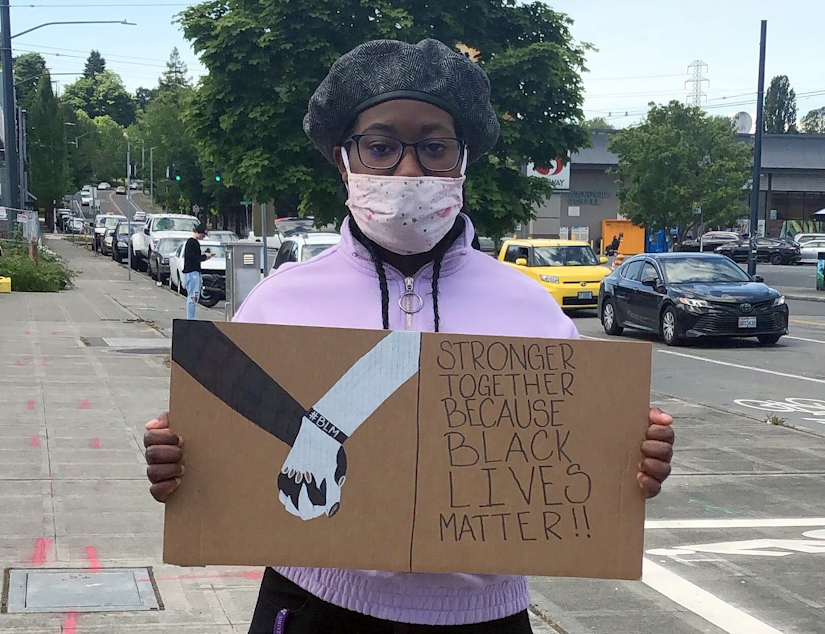'Counselors, not cops': Seattle students and staff call for district to get police out of schools

Seattle Public Schools' 11-year-old School Emphasis Officer program claims to help keep youth out of gangs and in school. Critics say it is part of the school-to-prison pipeline, and makes schools feel like jails.
Seattle students, school staff and parents are calling on the district to end its relationship with Seattle Police Department, as Minneapolis Public Schools did last week. They cite the department's use of force, including chemical weapons, against youth protesters at recent Black Lives Matter rallies, as well as the history of police killing people of color in Seattle and across the country.
City-funded police officers have been stationed inside several Seattle schools since 2009 as part of the Seattle Youth Violence Initiative. Officers are currently assigned to Denny, Washington and Aki Kurose Middle Schools and South Shore K-8 - all schools with large populations of Black students.
"Really, even though they're there to supposedly protect and serve, that's just not what we're seeing," said Angelina Riley, a Rainier Beach High School student and incoming president of the Seattle King County NAACP Youth Coalition.
Riley helped write a petition asking the district to end its relationship with the police department, a longstanding demand of the Coalition. A second petition is also circulating with similar demands.
To prevent youth violence and truancy, Riley said, schools need more counselors - not cops.
Sponsored
"We need to have more people there creating strong bonds with students, and provide the support that they need, rather than contributing to a school-to-prison pipeline," Riley said.
On Monday night, the representative assembly of Seattle Education Assocation, the teachers' union, voted to call on Superintendent Denise Juneau and the school board "to divest from of any funding toward, contracts, relationship, or outreach with Seattle Police Department."
District spokesperson Tim Robinson said the district does not have a contract with the police department, as in Minneapolis, but rather a memorandum of understanding.
"We're re-evaluating the program," Robinson said. Juneau is meeting with the principals of the schools with police officers, he said, and the district plans to work with Seattle Council PTSA to get feedback from students of color who attend the schools.
A 2017 ACLU of Washington report regarding police officers in schools found that officers often lacked training in how to work with young people, and that disciplinary incidents that could be handled by school staff instead often resulted in arrests by officers stationed inside schools.
Sponsored
Robinson said School Emphasis Officers in Seattle have never arrested a student. In 2015, though, an outside evaluation of the Seattle program found that School Emphasis Officers received "very little training for the prevention/intervention roles played by the officers, such as mentoring and education."
The report recommended additional training, regular evaluations of the program's effectiveness, and that each school involved have its own memorandum of understanding with the police department.
Robinson said he did not know how police in Seattle Schools are trained, and SPD did not immediately respond to a request for details about officers' training.
At a student-led Friday protest near Franklin High School against police brutality and systematic racism, students said they wish the district would end its relationship with the police department.
"I know for me, whenever I see police around, I get scared and I don't ever want to be around them," said Cleveland High School sophomore Asciana Hicks.
Sponsored
"I think that when police are present in schools, I feel like it kind of makes kids more scared."




